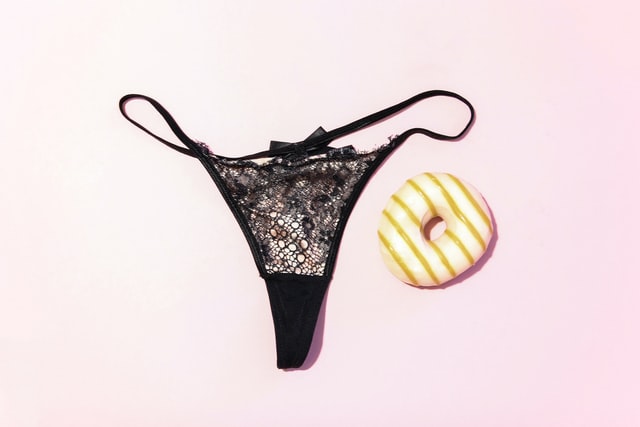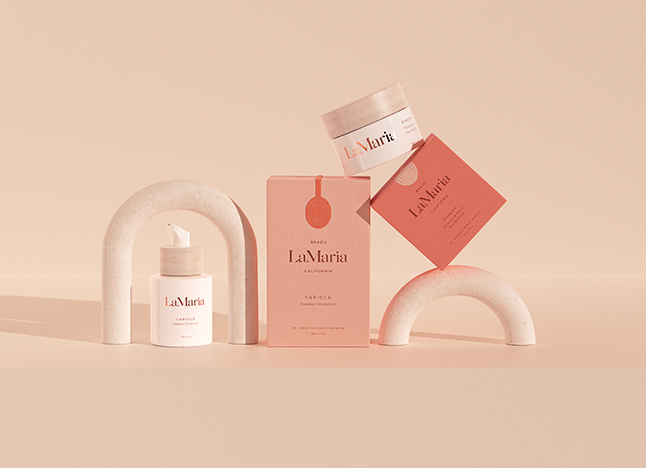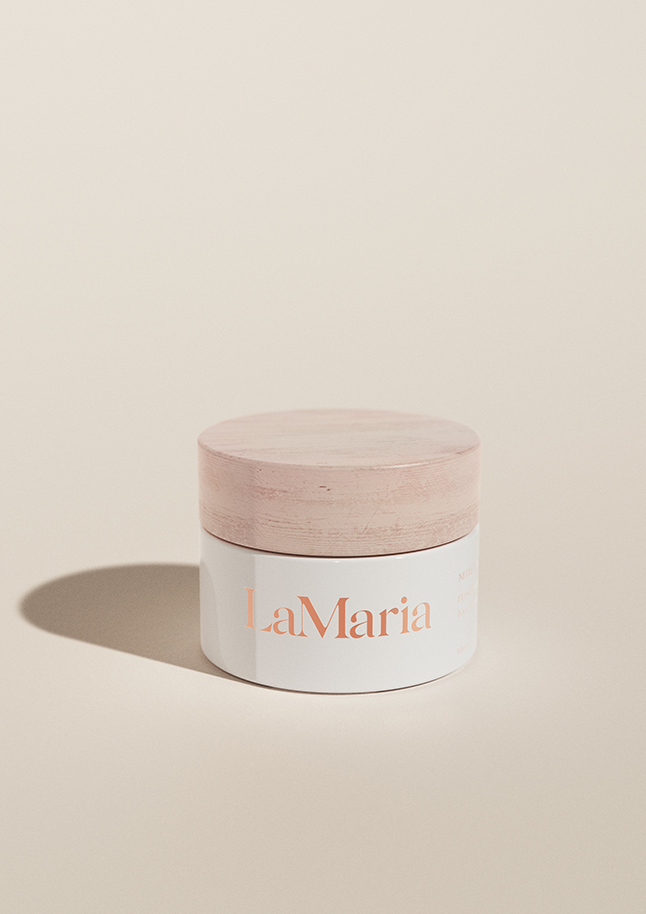Libido, libido, libido. Sexual drive and desire is a complex, ever-changing thing that moves and flows as we ourselves go through life cycles and age. So many things can affect libido for those of us with vaginas, including giving birth, starting menopause, and even our own mental health. For example, new mothers can feel lower libido due to exhaustion, low hormone estrogen levels due to breastfeeding it can keep them suppressed), feeling overstimulated and having no personal space, and body image or self-confidence issues, according to Dr. Lucky Sekhon, OB/GYN. When you age, you might also feel a sense of decreasing libido, but it’s different for everyone. Why do our body’s changes coincide with libido? We decided to find out for ourselves.
We interviewed Dr. Manuela Maria Vasquez to find out everything about libido. What it is, why it changes, and what you can do to increase it. Dr. Vasquez launches LaMaria today, a female wellness brand that works by supporting natural hormonal changes with advanced, effective feminine products. LaMaria combines scientific research, sensuous design, and plant nutrient power to tailor luscious skin wellness to your ever-evolving routine. Keep reading to learn more about LaMaria, Dr. Manuela Maria Vasquez, and your libido!

Everything You Need to Know About Libido
What is libido?
Simply put, libido is a person’s overall sexual drive or desire for sexual activity. The aspects that contribute to your libido are not as simple to understand as the actual definition of the word, As it is influenced by biological, psychological, and social factors.
Why would someone have a decreasing libido?
A woman’s sexual desire naturally fluctuates throughout her lifetime and low libido is a common sexual problem in women. It impacts women of all ages, with a peak in distress in midlife.
There are many complex interactions that contribute to these fluctuations in our libido:
- Biological factors: Significant hormonal changes such as menopause, pregnancy, the postpartum period, and breastfeeding can make you less interested in sex. The large drop in estrogen levels during the transition into menopause can lead to dry vaginal tissue. This can lead to painful intercourse. Vaginal dryness, compounded with bothersome hot flashes, night sweats, and disturbed sleep are symptoms. This can easily make a woman less interested in having sex.
- Hormones: The significant fluctuation in hormone levels during pregnancy, the postpartum period, and during breast-feeding, combined with sleep deprivation, fatigue, changes in body image, and the responsibility of caring for a new baby can also contribute to changes in your sexual desire.
- Social and psychological factors: Things such as work and family obligations, stress, and emotional well-being can all have an impact on our libido. For example, Women who have stressful work schedules or who are caring for their children and families may not feel like they have the energy/time to dedicate to sex.
- Physical factors: There are medical conditions (for example-vaginal infections, vaginismus, vulvodynia, pelvic floor muscle dysfunction, and vaginal changes due to menopause) that make sex uncomfortable or painful, causing women to avoid intercourse and contributing to a low desire to have sex. Other nonsexual medical conditions that can contribute to decreased libido include arthritis, cancer, diabetes, high blood pressure, heart disease, and neurological diseases.
- Medications: For example, women taking antidepressants, particularly those in the selective serotonin reuptake inhibitor family, may experience decreased libido, and for some women, hormonal birth control decreases their desire.
What are ways that you can increase your libido?
Restoring your libido isn’t something that can be done overnight. It takes dedicated time, introspection and may need support from a healthcare provider. First and foremost, you need to get to the root of the reason behind the decreased libido. Is it because you are having pain with intercourse, so you avoid it? Could it be because you are on a certain medication that is known to decrease your libido? Is it because you have been with your partner for 20 years and you know exactly what the “routine” is going to be when you have sex? Is the answer “yes” to a few of the questions? If so, each factor needs to be addressed.
If your relationship is starting to feel monotonous, focusing on improving the quality of the intimate, as well as the sexual relationship, can increase your libido. You need interventions that introduce novelty to the relationship– Planning date nights, setting aside quality time for each other, doing activities just the two of you. As far as improving the sexual relationship, focusing on foreplay, spending a night away from home, trying new sexual positions, incorporating a device or having sex at a different time of day in a new place, and expressing your sexual needs and preferences.
Low libido in women is often a combination of physical and psychological factors. Any woman who feels that her low libido is impacting the quality of her life should see her OB/GYN and discuss her options. There isn’t a “one size fits all” remedy and a variety of treatments are available to help women who want to improve their libido because every woman deserves to have a satisfying and rewarding sex life.

Does libido have anything to do with age?
Although some studies have shown that women between the ages of 27 and 45 were more interested in sex than any other age group, in general, desire usually drops with age. Women are two to three times more likely to be impacted by a decline in sex drive over time. This is compared to men. Reduced sex drive becomes much more common in women starting in their late 40s and 50s. More importantly, the effect of age also differs by an individual. Some women experience a decrease in sexual desire beginning in their midlife years. Others notice no change, and a few reports increased interest in sex at midlife.
This lack of consistency is a great illustration that although libido is not easy to understand. There are also many modifiable variables that are unique to each of us. The journey that can help us have whatever type of sex drive we desire.
What is LaMaria?
LaMaria is a female wellness brand targeting women who are experiencing life’s natural changes. LaMaria celebrates women over 30 by supporting natural hormonal changes with advanced, effective feminine products, including a feminine moisturizer and facial moisturizer. It combines scientific research, sensuous design, and plant nutrient power to tailor luscious skin wellness to your ever-evolving routine.
What inspired the brand’s creation?
As an OB/GYN dedicated to women’s wellbeing, I was underwhelmed with the options for patients experiencing vaginal dryness, a very common complaint heard by OB/GYN. Over 50% of women over the age of 50 suffer from vaginal dryness. This is due to declining hormone levels. Approximately 20% of women between the ages of 18-50 have complained of vaginal dryness at some point in their adult life. I felt very limited with the options I had to offer my patients. I wanted to recommend something better than products filled with unnatural chemicals, unproven ingredients, and harmful taboos. In order to do that, I had to create them.
I set out to found a different kind of wellness brand. One that honors, respects, and celebrates changes in a woman’s life. LaMaria provides clean, effective, and luxurious skin love for all we go through and grow through. LaMaria is an homage to my mother, Maria. She encouraged me to value women’s wellbeing, inspiring me to become a gynecologist. Maria believed beauty is a sense of self-worth that radiates from within, best honored by taking care of ourselves. Her legacy of confidence extends to all the women of her family who bear her name, from daughters to granddaughters.
What makes LaMaria different?
Instead of chasing perpetual youth, LaMaria focuses on who we truly are. This provides the nourishment we most need in our thirties and beyond. With luscious skin wellness tailored to our timelines, LaMaria nurtures beauty deeply and luxuriously in every decade.

Who is the ideal LaMaria user?
She is a woman who is in tune with her body and its needs. A woman who has a strong sense of self. She wants to age gracefully and beautifully and wants to pamper herself along the journey.
When do you recommend using the Carioca Feminine Moisturizer?
The Carioca Feminine Moisturizer ($ 68) is a soothing cream for women of every age and skin type seeking extra hydration and replenishment. Unlike vaginal lubricants, they can be applied regularly. It can also be applied on a daily basis. This helps to retain natural-feeling moisture while relieving discomfort from vaginal dryness. Shop the product here.
Women can experience vaginal dryness due to:
- hormonal changes
- breastfeeding and pregnancy
- certain medications, including birth control pills, antidepressants, and allergy medications
- harsh soaps, douches, and also perfumed feminine hygiene sprays
- certain medical conditions


